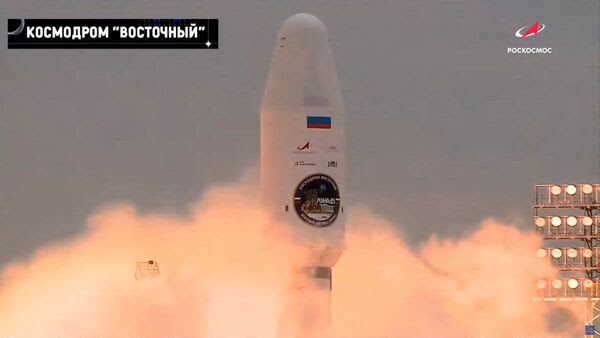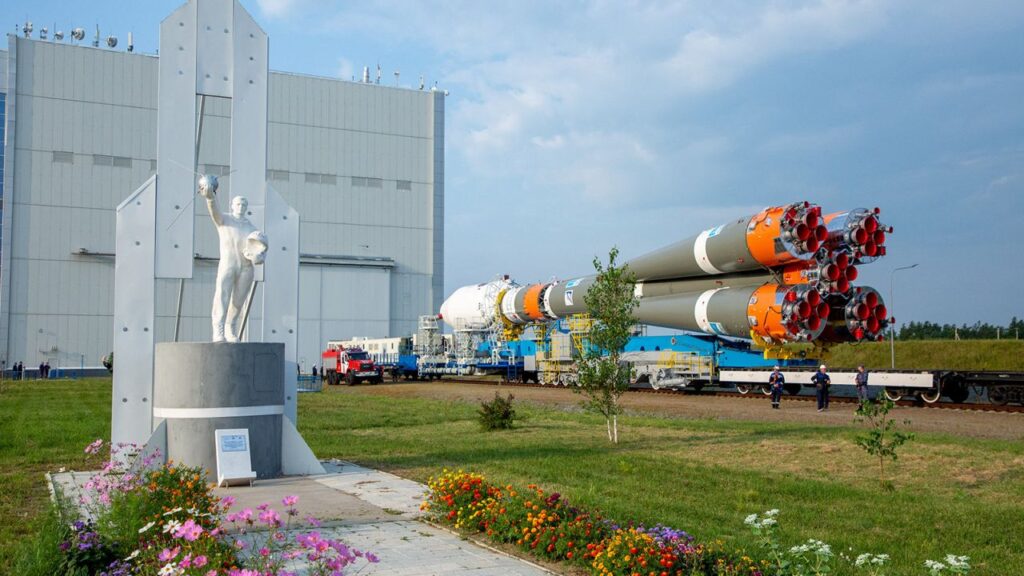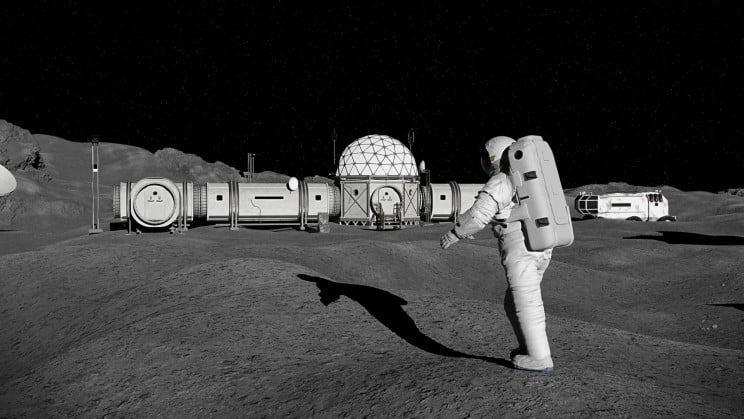Yesterday, August 10, 2023, a Soyuzb rocket carrying Luna 25 was launched from the Vostochny Cosmodrome in eastern Russia, marking Russia's first lunar mission in 47 years. A mission that aims to reach the south pole of the Moon, a region still largely unexplored.
Space experts and enthusiasts around the world are following this event with great interest, as it could not only reveal new information about the Moon, but also redefine our understanding of space exploration and the resources that our natural satellite could offer.

Ice, ice everywhere
Luna 25's destination was not chosen at random. The South Pole of the Moon has become a focal point for many space agencies. Simeon Barber, an eminent planetary scientist at the Open University of Milton Keynes, UK, highlights the importance of this region: “It's an area where we might expect to see strong concentrations of ice,” he says. And you have to believe him.
For decades, orbital data has suggested that the lunar poles contain significant amounts of water ice. Nico Dettman, leader of the Lunar Exploration Group at ESA, the European Space Agency, underlines the importance of this resource: “You can generate hydrogen and oxygen with it, which can be used to produce drinking water, breathable air or even rocket fuel.”
The Russian mission
One of Luna 25's main instruments is a robotic arm that will attempt to burrow up to 50 centimeters into the floor of the Boguslawsky crater. The target? Look for ice, of course. This research could not only reveal valuable resources, but also provide insights into the history of water in the solar system.
If Luna 25 lands successfully, it will mark a historic moment. After all, since 1976, only China has managed to land on the moon. Margaret Landis, a planetary scientist at the University of Colorado, Boulder, expresses a sentiment shared by many: “It would be nice to see someone make the landing.”

Not just Luna 25: there's a crowd.
Luna 25 is not the only mission headed to the south pole. India, with its Chandrayaan-3, will attempt a landing on August 23, and has already sent in the meantime extraordinary images of the lunar surface. China plans to send a rover in 2026, and also NASA's Artemis program (we're currently on the pick of space suits), which aims to return humans to the Moon, focuses on the South Pole.
Why this “new race”? For the same reasons, of course. Opportunities, but also geopolitical reasons.
With the launch of Luna 25, for example, Russia marks several "new beginnings". First of all, a detachment from its dependence on Kazakhstan, which hosted its main launch site, the Baikonur Cosmodrome. This mission represents not only a return to the Moon, but also a step forward in the recovery (forced, for obvious reasons) of Russian "space sovereignty".

Luna 25, a geopolitical issue
In summary: Luna 25 represents a bold step for Russia, but the mission above all has a political dimension. Scott Pace, a former executive secretary of the US National Space Council, believes the mission is more a statement of Russia's ambitions in space, in response to the activities of other nations.
Roger Launius, former NASA chief historian, sees Luna 25 as “an opportunity to take the lead and get positive publicity.”
The conflict in Ukraine has had repercussions not only on Earth, but also in space. On collaboration between Russia and Europe, for example. It would have seen European scientists work closely with Roscosmos on the Luna 25 and Luna 27 missions, but was abruptly ended.
Simeon Barber, who would have been part of the European team, saw the opportunity to join forces to explore the lunar south pole disappear. Another example of how terrestrial tensions can affect space cooperation, a field that usually (at least since the 70s) transcended geopolitical divides.
A future of cooperation or isolation?
The question now is: will Russia continue to seek international partners for its space missions or will it retreat to a more isolationist approach? At the moment, the "change of structure" prevails: the Russians they are already cooperating with China to build a lunar research station.
However, space exploration has always had the power to unite nations. I hope the international community can find common ground in space, even when divisions on Earth seem insurmountable.


